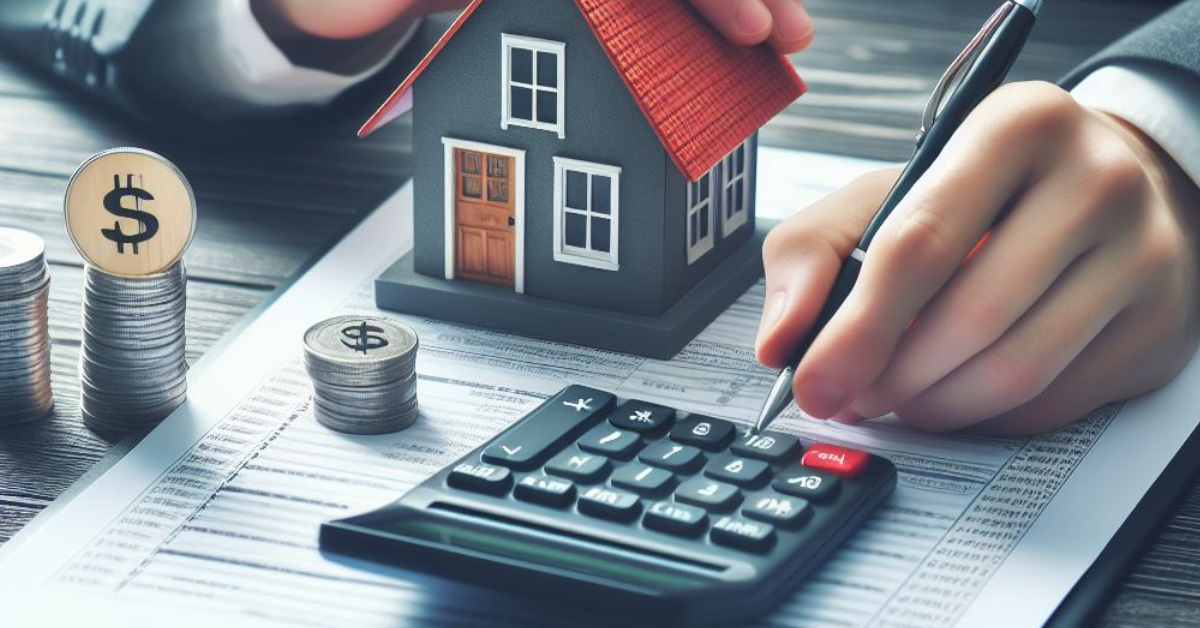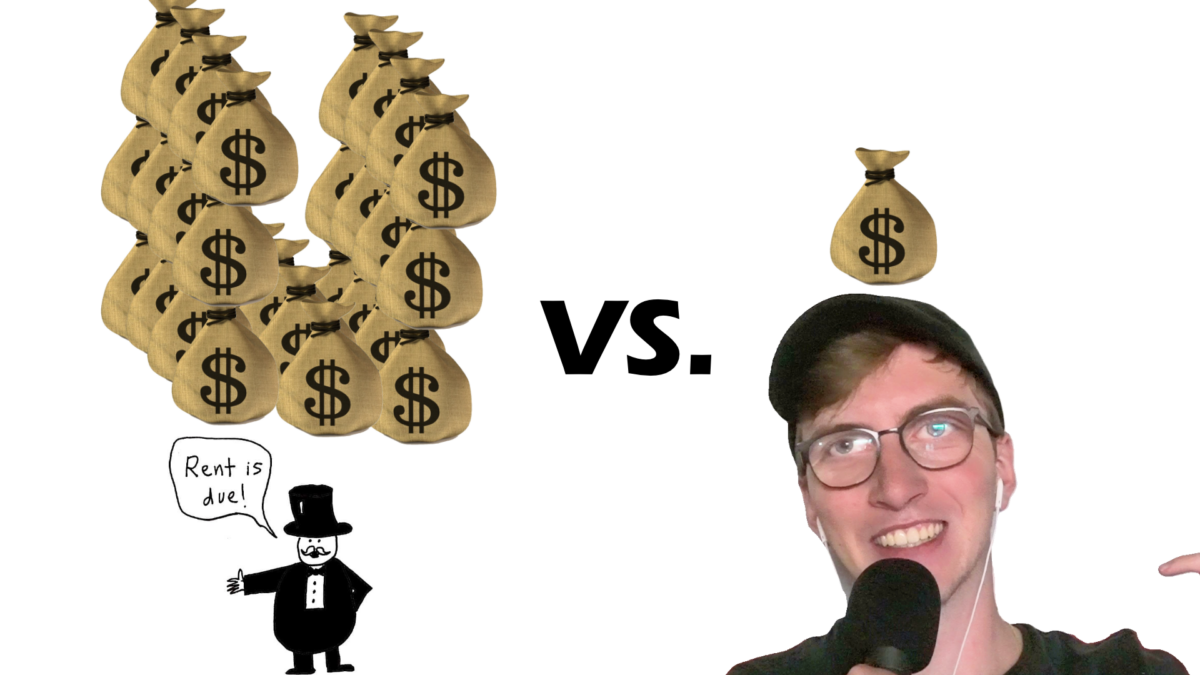Update Dec 14, 2024: Added Newsletter Email Archive at End of Post.
There are many tax benefits to real estate investing in Canada. The first and most obvious one is that you are not taxed on capital gains when you go to sell your primary residence. The idea is that a primary residence is not really an investment and can often cost a bunch more money than it makes you. So dollar for dollar you can move that money into a different home, minus realtor fees, lawyers, and land transfer tax (which don’t get me wrong, can add up). By contrast when you sell an investment property or stocks for that matter you will get hit with capital gains tax on 50% of the appreciation which gets added to your income and taxed at whatever brackets it fits into. This does not occur on your primary residence which is a very big advantage for people who are already in the property ladder and are either moving up or downsizing their home to fund their retirement. If you happen to have built up a good amount of home equity in your primary residence this can provide you with a significant amount of tax free money and save you hundreds of thousands of dollars on taxes in some cases.
Just because a primary residence is a very advantageous assets in term of tax benefits. Doesn’t mean you should discount the tax advantages of purchasing investment properties in the form of residential rentals or commercial properties. These have many similarities and differences. Depending on what type of property you want to manage you might prefer one over the other. You may want to speak with a tax accountant and a lawyer about the best corporate structures if you want to have a large portfolio of properties as they will be able to best advise you on your situation and how to make the most of the tax advantages. For now lets begin by discussing the tax advantages of investing in a regular residential investment up to 6 units (generally anything beyond 6 units is usually considered multi-family commercial). The first thing to understand is that the tax law views purchasing a rental property in a different way than purchasing a primary residence. The laws sees this as an investment with a profit motive, you can think of the investment home purchase almost as it’s own little business. Ideally it is making more money than it is costing the business to operate, or it is growing in value faster than the money you have to put into it to keep it afloat.
The first advantage to owning a rental property is something called depreciation. The CRA calls this CCA (Capital Cost Allowance). When you purchase an asset to run a business (a capital expense), you are allowed to depreciate it a certain percentage every year depending on which CCA class it falls into. The idea is that as you use the asset you bought to run your business, it wears and tears and may even require additional expenditures (such as paint, appliances or new wiring). All of these expenditures might be required to maintain the assets function to continue producing income for the business. However, over time the property will wear out beyond a useable state (this is more so the case with electronics and similar items, but the general idea still applies to rental properties for tax purposes). In this case the capital expense would be the cost of purchasing the home for the business. For typical residential rental properties the CRA allows a 4% depreciation rate per year (this varies depending on building uses etc). Depreciation can benefit you because it can be deducted from your rental income.
Similarly, you can deduct 100% of the interest portion of your monthly mortgage payments (ONLY the interest, not the loan principal you paid down). Loan interest on debt is seen as a cost of doing business. For example in a regular business the owner might take out a loan to purchase machinery for a factory and they owe interest every month. That interest is seen as a cost of doing business and can be deducted against revenues. Interest on a loan is categorized as an interest expense which means you get to deduct 100% of it against income rather than the depreciation expense of 4%. As an aside, when you go to sell and it turns out your rental property went up in value but you depreciated the entire thing. You will have to pay tax on the “recapture” of the depreciation. So you’re effectively deferring the tax burden to a later date, but it will still come (assuming the property goes up in value when you go to sell). Interest expenses are one and done, no recapture.
All of this jargon might be a bit confusing so lets take a look at a quick example. You purchase a home for $700,000 including lawyer fees and renovations and you rent it out for $3000/month. In the first year you would have access to 2% depreciation due to something called the half year rule. The year in which you make a capital expenditure is treated as if you purchased that property halfway through the year, thus giving you half the depreciation for the first year. This means that you can depreciate the rental property 2% in year 1 and 4% in the following years. So 2% of $700,000 is $14,000. Your total rental income is $3000 * 12 = $36,000. At todays mortgage rates of around 5% you would end up paying approximately $32,000 in interest on the mortgage in that first year (assuming you purchased January 1). So what you would do is deduct the interest first leaving you with revenues of $4,000. Then you would apply $4,000 of the available depreciation making your net income before taxes a big fat ZERO.
So what you effectively managed to do here is make an income from your rental property, and you found a way to pay zero tax on it. Over time the property will appreciate and when you go to sell you will owe capital gains tax since it’s a rental. Eventually the interest expense on your mortgage will shrink and the amount that you can depreciate the property will shrink and you will owe tax on the rental income. But in 25 years or so, you will own a completely paid off asset, that is generating you monthly income. With the home equity you’ll be able to take out a line of credit for about 65% of the homes value and do this all over again (or sooner than 25 years from now if it appreciates significantly). I think the best part about all of this that I’m glossing over a bit is that someone else was paying the mortgage and covering all (or most) of the expenses required to operate the home. You are effectively accumulating wealth at double speed assuming you also have a primary residence that you are building home equity in. If you add a third or fourth rental property you can see how this just continually compounds and doesn’t necessarily cost you a lot of money every month to carry the asset. In major cities around the Greater Toronto Area you will most likely face a negative cash flow scenario for the first 5 years or so of owning the property. But maybe somewhat counterintuitively now is a great time to buy a rental property while interest rates are still somewhat high. If you anticipate them dropping in the future, which I do. In 5 years from now when you go to renew your mortgage it’s very likely that your future mortgage payments will be lower than they are today and your rental income will likely be higher, closing the gap of negative cash flow. As another aside, I would recommend talking to an accountant or lawyer if you are going to do a big renovation and want to add it to your homes capital expense bucket because there are certain restrictions to what is or is not considered a capital expense.
We’ve gone over the basics of a simple rental residence that has one or two units. But lets say that you want to venture into the commercial real estate world and purchase a property with more than 6 residential units. What changes? Well the most important thing that changes is that commercial properties are truly treated as standalone businesses. Unlike homes where they are valued based on other homes, commercial properties are valued mostly on the income they are generating (or capitalization rate). Often times people will choose to set up a corporation to hold the property which then means dealing with corporate taxes. The corporate tax rate for small businesses making less than $500,000 is 9% federally and 3.2% in Ontario. Corporate taxation does get somewhat complicated, and as a business owner you can choose to either pay yourself a dividend or pay yourself as an employee, both of which are treated differently under the tax code (speak to an accountant). If you retain the earnings in the business and don’t pay yourself as an employee you will pay the tax rate on the income earned. Similar to the previous example you can deduct costs of running the business, expenses, capital gains, interest expenses, vehicle expenses, etc. all BEFORE you pay tax. This is different from you as an employee in one major way. On your earned salaried income you owe tax immediately and then you get to spend the remainder. Businesses spend first and get taxed later which presents some unique advantages and enables businesses to focus on reinvesting and can grow a business very quickly. Another aside, the rate of depreciation on a commercial property may be different and depending on the type of property the physical land, versus the building that is on the land may be treated differently under the tax code.
The end benefits of operating in a corporate structure is that once you begin to earn taxable income, the tax rates are much lower and it becomes easier to continue to invest within the corporation. You retain more of your earnings within the business which can lead to even faster growth in wealth and there are many more tricks that accountants and lawyers can do to defer your tax burden even further. See estate planning and setting up trusts. If any of this interests you further I would recommend studying the book, Legal, Tax and Accounting Strategies for the Canadian Real Estate Investor by Steven Cohen and George Dube. It was published in 2010, but there are still ton’s of relevant strategies in that book depending on what stage of investing you are in. I do highly recommend simply talking to another real estate investor who has done what you are considering doing as well as an accounting or legal professional as they will be able to best advise you depending on what you are interested in pursuing. It’s very useful to talk to someone who is already doing the thing you want to do because they will have come across many hurdles that you may be able to avoid if you ask the right questions. There are endless layers of depth to this discussion but to avoid an information overload I’ll save it for another time. I hope that between this post and the last post talking about the return on investment (ROI) of rental properties I have got you seriously thinking about the power of real estate investing. You can make it as simple or as complicated as you want and you can even become a developer! (Not for the faint of heart with all the red tape nowadays). Hopefully you found this article interesting or useful and I hope you have an amazing day!
All the best,
Oliver
Newsletter #9: Tax Benefits of Real Estate Investing, Government Program Shut Down

This Weeks Blog Post:
Tax Benefits of Real Estate Investing in Canada:
- I discuss the ways in which the tax code is benificial to real estate owners and investors in Canada
- How these tax benefits can help speed up your wealth accumulation even more
- Differences between single-family rentals and mutli-family commercial rentals from a tax perspective
Read the full blog post here: https://oliverfoote.ca/2024/03/03/tax-benefits-of-real-estate-investing/
Housing News:
- The CMHC is cancelling the First Time Home Buyer Incentive which was a program where the government would front 5-10% of the down payment required to purchase a home and share in the upside or the downside (up to 8% per year). It clearly didn’t catch on with consumers as they have decided to end the program on March 31, 2024.
- Mississauga misses target to build homes set by Ontario government in 2023 (goal: 8800 housing starts. actual: 3470) losses out on millions in funding.
- Toronto exceeds target and is rewarded $114 million through the “Building Faster Fund” (goal: 20,000 housing starts, actual: 31,656 housing starts).
- Bank of Canada Rate decision will happen this Wednesday. Inflation and employment are both improving however they may still want to see even more data before coming to a decision to cut rates.
Market Performance as of close Friday Feb 16, 2024:
S&P 500: 5,137.08 (+8.31% YTD)
NASDAQ: 16,274.94 (+10.22% YTD)
S&P/TSX Composite 21,552.35: (+3.26% YTD)
Canada CPI Inflation Jan 2024: 2.9% (0.5% Decrease from Dec 2023)
Current BoC Benchmark Interest Rate: 5% NC (Next Meeting: March 6, 2024)
Unemployment Rate Jan 2024: 5.7% (0.1% Decrease from Dec 2023)
Hope you have an amazing week! Chat soon!
-Oliver Foote

